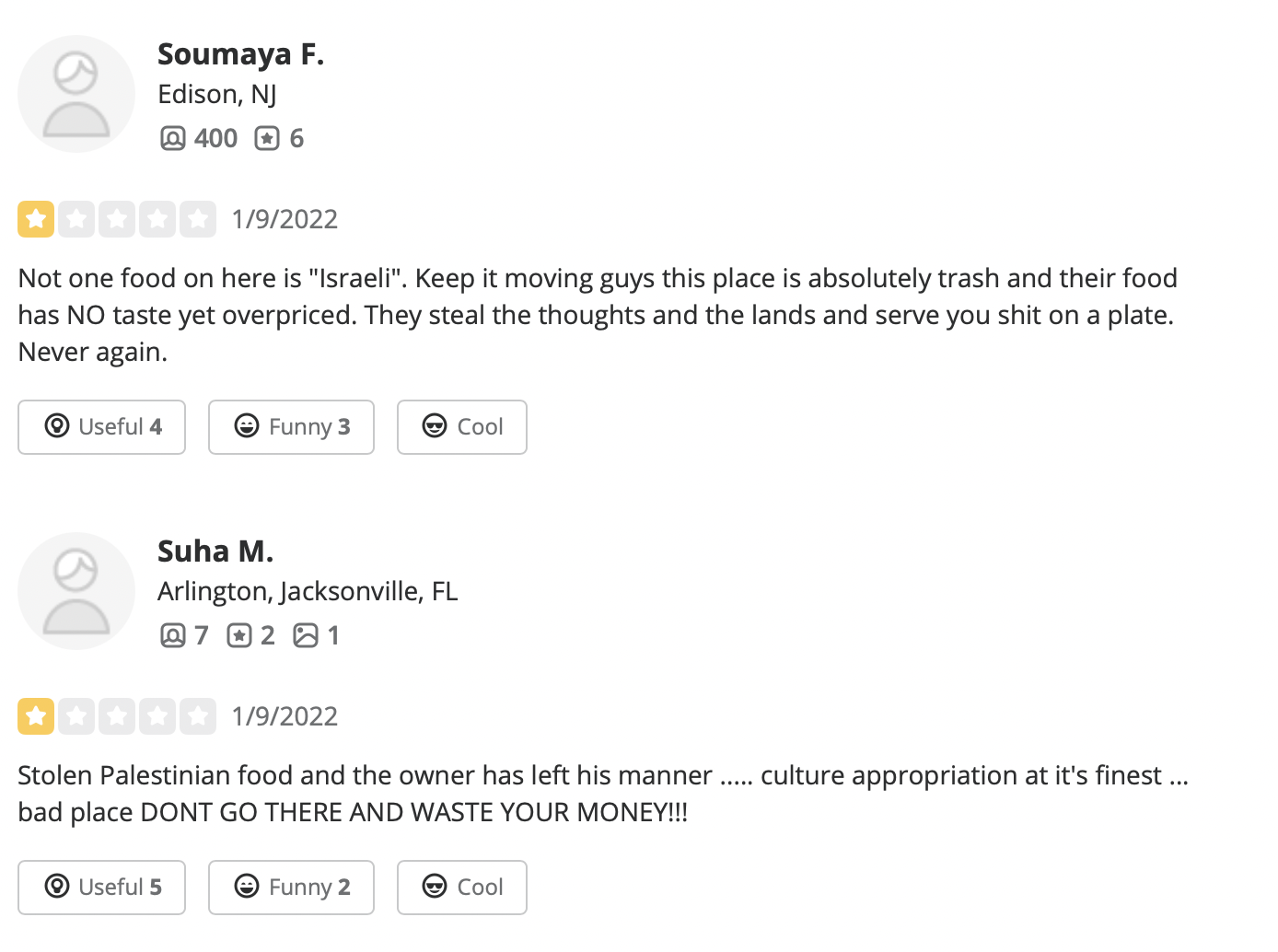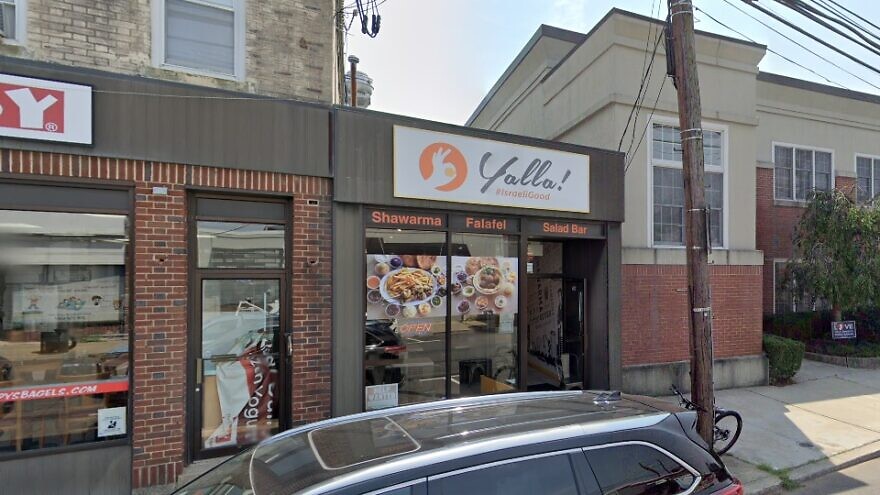Online restaurant reviews are the latest battleground for anti-Israel activists who have recently targeted a kosher eatery in New Jersey with a barrage of anti-Semitic comments, including claiming that the food was “stolen.”
Located on what is referred to as a relatively small “kosher restaurant row” in Teaneck, N.J., Yalla is not on a major thoroughfare nor does it have a clientele base from outside of the Northern New Jersey Jewish community. What it does have, however, is an Arabic name—yalla, which is commonly used in Israel and means “let’s go”—and that has attracted some online attention, though not in a good way.
Most of the time, Goldberg simply flags the reviews on Google and asks that they be removed. “Sometimes,” he explains, “it’s very obviously hate speech, and it comes down. But if it’s food-related—like I found a hair in my food—even though someone from Damascus is posting it and has obviously never been to my restaurant, the computer doesn’t flag it.”
So Goldberg decided to take a new tactic; last week, he responded to the review himself, setting off a firestorm as the poster urged Palestinian supporters via social media to add more one-star, or unfavorable, reviews of Yalla. A TikTok video was even posted by one woman who said, “So this Israeli restaurant in Teaneck, N.J., is falsely advertising Palestinian, Middle Eastern food. This is what their menu looks like, falafel and shawarma. Uh no. So, us Palestinians have to do the job. They messed with the wrong people. … Free Palestine.”

‘A digital force instead of physical means’
Liora Rez, executive director of Stop Antisemitism, said “to target a kosher restaurant in New Jersey and hold it responsible for a global political conflict is undeniably anti-Semitic.”
“Rather than participating in targeted harassment campaigns against innocent Jewish business owners, we would prefer to see Palestinian youths participating in peace and normalization initiatives that would help both Jews and Arabs alike,” she said.
Goldberg believes there were at least 300 one-star reviews posted that night, some of which also included Palestinian flags and the words “Free Palestine.”
“In real life, if you get attacked, you call 9-1-1 and the police respond, but if you get attacked online, nothing, nothing, nothing happens. … A 5-year-old can look at these reviews and tell they are fake, yet Google—a multibillion-dollar company—can’t flag something like this a fake is just pretty astonishing.”
After having no luck reaching out to Google himself, Goldberg reported the incident to the Anti-Defamation League, which confirmed it is a case of anti-Semitism.
“This concerted effort to drive down reviews as a way to harm individuals and not a political entity is what ends up being problematic and downright anti-Semitic,” said Alexander Rosemberg, deputy regional director of the ADL NY/NJ Region. “It is absolutely wrong.”
“ … It’s like picking on someone to target in the middle of Times Square because he is wearing a yarmulke; it’s just a digital force instead of physical means,” he added.
According to Rosemberg, the ADL’s Center for Technology and Society maintains contact with the Big Tech companies and is currently speaking with Google about the Yalla incident.
“We should all be very educated and very aware about the processes and procedures that these platforms have put in place to denounce harmful and nefarious behavior,” he said, noting that the ADL has a cyber-safety action guide to help people know their rights.
Though the number of anti-Semitic and anti-Israel reviews was troublesome, what happened next, said Goldberg, was heartening. Several Jewish and pro-Israel groups, including Raz’s organization, StopAntiSemitism.org, rallied to counter the negative reviews helping to drive Yalla’s rankings back to where they had been before the cyber fight.
According to Goldberg, since the news of the cyber battle broke on Sunday, people have been stopping into Yalla “just to show their support.” And that, he said, “feels amazing.”
When asked if the press would cause a spike in business, he replied: “In the short term, I’ve been getting a lot of support from Jews who felt they had to come out and fight hate. I don’t think there will be much impact in the long term. I spoke to many people who think Google reviews are mostly fake anyway, especially if you see pro-Palestinian reviews. They trust the old-fashioned way of reviews from friends and family. So probably not much impact.”


























